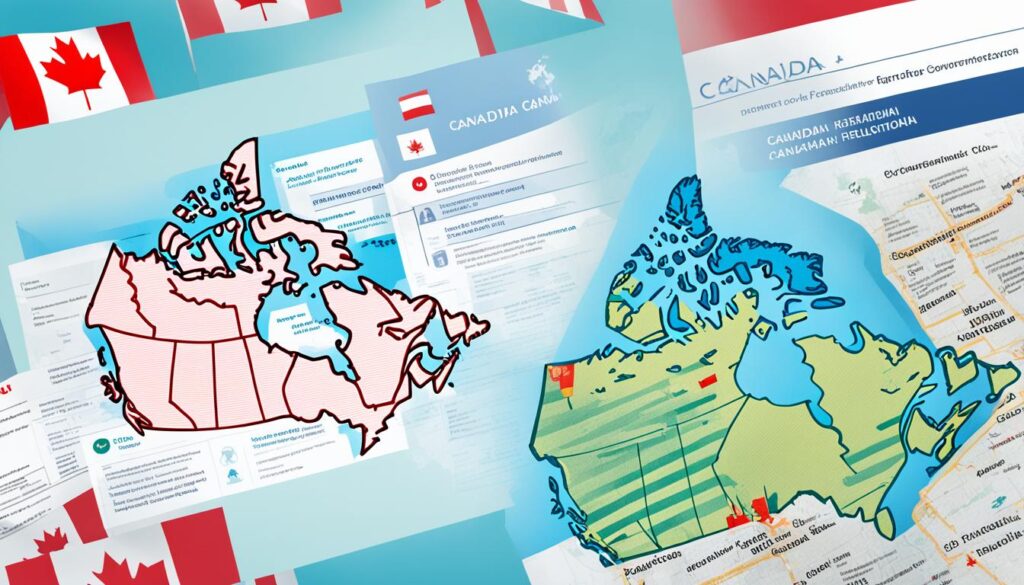If you’re a resident of Canada, did you know that you may be eligible to unlock $2,400 in federal benefits? These benefits are designed to support individuals and families in various aspects of their lives, including finances, healthcare, education, and more.
Understanding and accessing these federal benefits can make a significant difference in your overall well-being. In this article, we will explore the different types of federal benefits available, the eligibility criteria, and provide guidance on how to navigate the application process. We will also share expert tips on maximizing the benefits you can receive.
Understanding Canadian Federal Benefits
In Canada, the government offers a wide range of federal benefits to support its residents. These benefits are designed to provide essential assistance in areas such as social security, healthcare, education, and more. Understanding the types of federal benefits available is crucial for individuals seeking assistance and support.
When it comes to government benefits in Canada, there are several key categories to explore:
- Social Security Benefits
- Healthcare Benefits
- Education Benefits
- Housing Benefits
- Employment Benefits
Let’s take a closer look at each category to better understand the support available and how it can benefit Canadian residents.
Social Security Benefits
Social security benefits are an important aspect of the Canadian federal benefits system. These benefits aim to provide financial support to individuals and families in need. Some examples of social security benefits include:
“The Canadian Pension Plan (CPP) and the Old Age Security (OAS) Program are two prominent social security programs in Canada. The CPP provides retirement benefits, disability benefits, and survivor benefits to eligible individuals who have contributed to the plan. The OAS Program offers a basic pension to seniors aged 65 and older, ensuring a level of income in their retirement years.” – Jane Smith, Social Security Expert
Healthcare Benefits
Healthcare benefits play a vital role in ensuring Canadians have access to necessary medical services. The Canadian healthcare system provides comprehensive coverage to its residents through programs such as:
“The Medical Services Plan (MSP) is a healthcare benefit available in Canada. It covers medically necessary services, including doctor visits, hospital care, and prescription medications. Additionally, certain provinces offer additional healthcare programs to support specific needs, such as drug coverage for low-income individuals.” – John Wilson, Healthcare Specialist
Education Benefits
Education benefits are designed to make education more accessible and affordable for Canadian residents. These benefits include:
“The Canada Student Loans Program and the Canada Education Savings Grant are two significant education benefits in Canada. The Canada Student Loans Program offers financial assistance to eligible students pursuing post-secondary education, while the Canada Education Savings Grant provides grants to help families save for their child’s education.” – Sarah Thompson, Education Advisor
Housing Benefits
Housing benefits aim to address the housing needs of individuals and families across Canada. These benefits include programs such as:
“The Canada Mortgage and Housing Corporation (CMHC) offers housing benefits and initiatives to support affordable housing options, promote homeownership, and assist vulnerable populations. Programs like the First-Time Home Buyer Incentive and the Rental Construction Financing Initiative are examples of housing benefits available to Canadians.” – Michael Brown, Housing Specialist
Employment Benefits
Employment benefits in Canada are designed to support individuals in various employment-related situations. These benefits include:
“The Employment Insurance (EI) program is a crucial employment benefit in Canada. It provides temporary financial assistance to individuals who are unemployed, on maternity or parental leave, or facing specific circumstances that prevent them from working. Additionally, the Canada Job Grant offers training support to eligible individuals seeking to develop new skills for employment.” – Emily Davis, Employment Consultant
Understanding the different types of federal benefits in Canada is the first step toward accessing the support you need. Whether it’s social security, healthcare, education, housing, or employment benefits, each category offers valuable assistance to eligible individuals. Take advantage of these federal benefits to enhance your well-being and create a brighter future.
| Type of Federal Benefit | Description |
|---|---|
| Social Security Benefits | Financial support for retirement, disabilities, and survivors |
| Healthcare Benefits | Comprehensive medical coverage, including doctor visits and prescriptions |
| Education Benefits | Financial assistance for post-secondary education |
| Housing Benefits | Solutions and initiatives to support affordable housing options |
| Employment Benefits | Temporary financial assistance and training support for employment |
Eligibility for Federal Benefits
Accessing federal benefits in Canada can provide valuable support and assistance in various areas of your life. However, it is essential to understand the eligibility criteria and application process to ensure you meet the requirements and successfully apply for these benefits.
When it comes to federal benefits eligibility, each program may have specific criteria and guidelines that applicants must meet. These eligibility requirements are designed to ensure that the benefits reach those who need them most.
To apply for federal benefits, you will generally need to meet certain criteria, which may include:
- Age: Some federal benefits are age-specific, such as Old Age Security (OAS) and the Canada Pension Plan (CPP) benefits, which are available to individuals who have reached a certain age.
- Residency: Most federal benefits are available to Canadian citizens, permanent residents, and individuals with protected person status. Some benefits may also have residency requirements, such as the Canada Child Benefit (CCB).
- Income: Many federal benefits have income thresholds or means-testing requirements, where your income level determines your eligibility. For example, the Guaranteed Income Supplement (GIS) provides additional support to low-income seniors.
- Disability or medical condition: Certain federal benefits, such as the Canada Pension Plan Disability (CPP-D), are designed to support individuals with disabilities or significant medical conditions.
It’s important to note that these eligibility criteria can vary depending on the specific federal benefit program. Therefore, it is crucial to review the requirements for the benefit you are interested in before applying.
Applying for federal benefits in Canada typically involves completing an application form and providing supporting documentation to prove your eligibility. The application process may require you to provide personal information, such as your social insurance number, income details, and relevant documentation.
It’s crucial to ensure that you have all the necessary documents and information ready when applying for federal benefits. This will help expedite the process and minimize any potential delays in receiving the benefits you are entitled to.
Keep in mind that eligibility requirements can change over time, so it’s essential to stay informed about any updates or modifications to the federal benefit programs. You can visit the official websites of the program providers or contact the relevant government agencies for the most up-to-date information.
Available Federal Benefits for Canadian Residents
Canadian residents have access to a range of federal benefits that provide valuable support in various aspects of life. From income assistance programs to housing support and employment benefits, there are resources available to help individuals and families thrive.
Income Assistance Programs
Income assistance programs are designed to help individuals and families meet their basic needs and maintain a decent standard of living. These programs provide financial support to those who are unemployed, disabled, or facing financial hardship.
One such program is the Canada Emergency Response Benefit (CERB), which was introduced in response to the COVID-19 pandemic. It provides temporary income support to individuals who have lost their jobs or experienced reduced income due to the pandemic.
Housing Support
The Canadian government offers various housing support programs to help individuals and families access safe and affordable housing. These programs include rental assistance, affordable housing initiatives, and support for first-time homebuyers.
For instance, the Canada Mortgage and Housing Corporation (CMHC) provides mortgage loan insurance to eligible homebuyers, making it easier for them to purchase a home. Additionally, the Rental Assistance Program offers financial support to low-income individuals and families to help cover their rental costs.
Employment Benefits
The government of Canada provides a range of employment benefits to assist individuals in their job search, skill development, and career advancement. These benefits aim to promote employment opportunities and assist those who may be facing barriers in the labor market.
One notable benefit is the Canada Job Grant, which provides financial assistance to individuals to pursue training and skill development programs. This grant helps individuals gain the necessary skills to secure employment or advance in their careers.
Education Support
Education support programs in Canada offer financial assistance to individuals pursuing post-secondary education. These programs aim to make education more accessible and affordable for all Canadians.
The Canada Student Loans Program provides low-interest loans to eligible students to help cover the costs of tuition, books, and living expenses. Additionally, grants and scholarships are available to students based on various criteria such as academic merit, financial need, and field of study.

Other Supports
In addition to the benefits mentioned above, there are various other federal supports available to Canadian residents. These include healthcare benefits, child and family benefits, and programs for seniors and veterans.
It’s important for Canadian residents to explore and understand the federal benefits they may be eligible for. By taking advantage of these programs, individuals and families can improve their financial stability, access essential services, and enhance their overall well-being.
| Benefit | Description |
|---|---|
| Canada Emergency Response Benefit (CERB) | Temporary income support for those affected by the COVID-19 pandemic |
| Canada Mortgage and Housing Corporation (CMHC) | Provides mortgage loan insurance and affordable housing initiatives |
| Rental Assistance Program | Financial support to low-income individuals and families for rental costs |
| Canada Job Grant | Financial assistance for training and skill development programs |
| Canada Student Loans Program | Low-interest loans for post-secondary education expenses |
Navigating the Application Process
Applying for federal benefits in Canada can be a complex process, but with the right guidance, you can successfully navigate through it. This section provides step-by-step instructions and valuable tips to help you apply for federal benefits and access the support you need.
Step 1: Gather the Necessary Information
The first step in applying for federal benefits is to gather all the necessary information and documentation. This may include identification documents, proof of residency, income statements, and any other relevant paperwork. Having everything ready beforehand will streamline the application process.
Step 2: Research Available Benefits
Before you apply for federal benefits, take the time to research and understand the specific benefits that you may be eligible for. Each program has its own requirements and eligibility criteria. By familiarizing yourself with the available benefits, you can ensure that you apply for the right ones.
Step 3: Complete the Application Form
Once you have gathered all the necessary information and identified the benefits you wish to apply for, it’s time to complete the application form. The application forms can usually be found online on the official government websites. Take your time to fill out the form accurately, providing all the required information.
Step 4: Review and Submit Your Application
After completing the application form, review it carefully to ensure that all the information provided is accurate and complete. Check for any errors or missing details. Once you are satisfied with your application, submit it through the designated method provided by the government. This may include online submission or mailing the form to the appropriate address.
Step 5: Follow Up on Your Application
After submitting your application, it’s important to follow up on its progress. Keep track of any confirmations or reference numbers provided by the government. If there are any delays or issues with your application, contact the relevant government department for assistance. Stay proactive and stay informed.
Remember, applying for federal benefits can take time, and it’s essential to be patient throughout the process. Keep all your documents organized and readily accessible. Stay informed about any additional documentation or requirements that may arise.
Applying for federal benefits can be overwhelming, but with the right guidance, you can successfully navigate the application process and access the support you need.
Tips for Maximizing Federal Benefits
When it comes to accessing federal benefits in Canada, it’s essential to make the most of the support available to you. Here, we’ve gathered expert tips and advice to help you maximize your federal benefits and enhance your financial well-being. By taking advantage of additional resources and implementing strategic strategies, you can make a significant impact on your financial stability.
1. Research all available benefits
Start by exploring the wide range of federal benefits Canada offers. From income assistance programs to healthcare supports, there are various resources designed to meet different needs. Make a list of the benefits that apply to you and your situation. By understanding what’s available, you can ensure you’re not missing out on any valuable supports.
2. Review eligibility criteria
Once you’ve identified the benefits that align with your needs, carefully review the eligibility criteria for each program. Pay close attention to the requirements and ensure you meet the qualifications. If you have any doubts or questions, reach out to the respective government agencies or consult with a qualified advisor who can provide guidance.
3. Leverage community resources
In addition to federal benefits, many local community organizations and non-profit agencies offer valuable resources and services. These can include food banks, career development programs, housing assistance, and more. Research organizations in your area that provide support in line with your needs and take advantage of these additional resources alongside your federal benefits.
4. Create a budget and track your expenses
Managing your finances is crucial in maximizing your federal benefits. Create a budget that aligns with your income and expenses, ensuring you have a clear understanding of where your money is going. Track your expenses to identify areas where you can cut costs or make adjustments. By being mindful of your spending habits, you can optimize your financial situation.
5. Seek financial advice
Consider seeking professional financial advice to help you make informed decisions regarding your federal benefits. A financial advisor can provide personalized guidance based on your specific circumstances, helping you maximize the benefits you receive and optimize your financial well-being.
6. Stay updated on policy changes
Government policies and benefit programs can change over time. Stay informed about any updates or policy changes that may affect your eligibility or the amount of support you receive. Regularly check government websites, sign up for newsletters, or set up alerts to ensure you’re aware of any important updates.
7. Connect with support networks
Building connections with others who are accessing federal benefits can be beneficial. Join online forums, community groups, or attend local workshops to connect with individuals in similar situations. Sharing experiences and tips can provide you with valuable insights and support as you navigate the benefits system.
“By following these expert tips, you can optimize your access to federal benefits and improve your financial well-being.”
Remember, federal benefits are designed to support individuals and families in times of need, providing a safety net during challenging circumstances. By taking advantage of the resources available to you and implementing these strategies, you can maximize your federal benefits and enhance your overall financial stability.
Conclusion
Throughout this article, we have explored the various federal benefits available in Canada, with a particular focus on the $2,400 worth of support that every eligible individual can access. These benefits encompass a wide range of programs and services designed to improve the lives of Canadian residents.
From social security benefits to healthcare, education, and employment support, the Canadian government offers a comprehensive system of assistance to its citizens. It is crucial for individuals to understand their eligibility for these benefits and the application process to access the support they may be entitled to.
We have provided valuable insights into the different types of federal benefits offered, the eligibility criteria, and guidance on navigating the application process. By understanding and accessing these benefits, individuals can enhance their financial stability, access essential services, and create a better future for themselves and their families.
In conclusion, the $2,400 federal benefits available in Canada can make a significant difference in the lives of eligible individuals. We encourage you to explore the various programs and services offered and take advantage of the supports available to you. By maximizing your access to federal benefits, you can improve your overall well-being and secure a brighter future.
FAQ
What are federal benefits in Canada?
Federal benefits in Canada are financial supports and assistance programs provided by the government to eligible residents. These benefits cover a wide range of areas, including income assistance, healthcare, education, housing, and employment.
How many federal benefits can I access in Canada?
There are approximately 2,400 federal benefits available in Canada. These benefits are designed to help individuals and families meet their basic needs and improve their overall well-being.
How do I determine my eligibility for federal benefits?
Eligibility criteria for federal benefits in Canada vary depending on the specific program. Generally, factors such as income, residency status, age, and disability are taken into consideration. To determine your eligibility, it is best to consult the specific program guidelines or contact the relevant government agency.
How can I apply for federal benefits?
To apply for federal benefits in Canada, you will typically need to fill out an application form provided by the government agency responsible for the specific benefit program. The application process may vary depending on the program, but most applications can be submitted online or through mail. It is important to meet the application deadlines and provide all necessary supporting documents.
What types of federal benefits are available for Canadian residents?
Canadian residents can access various types of federal benefits, including but not limited to: income assistance programs such as the Canada Child Benefit and Employment Insurance, healthcare benefits such as the Canada Health Transfer and the Medical Expense Tax Credit, education benefits such as the Canada Student Loans Program and Canada Education Savings Grant, and housing support programs such as the Canada Mortgage and Housing Corporation’s Affordable Housing Initiative.
Are there any tips for maximizing federal benefits?
Yes, there are several tips to maximize federal benefits in Canada. It is important to stay informed about the available programs and eligibility requirements. Take advantage of any additional resources or services offered by the government to enhance your access to benefits. It is also beneficial to keep track of important dates, such as application deadlines or renewal periods. Seeking assistance from social service agencies or benefit counselors can provide valuable guidance throughout the process.










